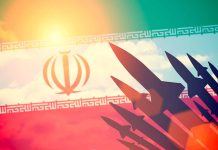
In early October, CNN’s team experienced captivity in Sudan’s hostile terrain, shedding light on the perils press corps face in war-torn regions.
At a Glance
- CNN correspondent Clarissa Ward and team detained by militia in North Darfur for 48 hours.
- The crew aimed to report from Tawila, a town amidst civil war.
- Accused of being spies, they faced intense interrogation and difficult conditions.
- Released after militia contacted families to confirm safety but with speaking restrictions.
Arduous Mission in Darfur
CNN’s Clarissa Ward, along with cameraman Scott McWhinnie and producer Brent Swails, embarked on a mission to Tawila amid Sudan’s civil strife. The neutral faction-controlled town offered a glimpse into the human plight but turned perilous when local militia suspected espionage. Detention began with interrogation and difficulties, shedding light on journalism’s risks in volatile areas, especially those documenting conflicts affecting millions.
These journalists found themselves under armed guard led by a figure dubbed the “general.” With soldiers as young as fourteen, they lived through harsh conditions outdoors under acacia trees. Ward, the only female in the group, was forced to limit her water and food intake due to lack of privacy. Their situation underscores the complexities of documenting crises like Sudan’s.”For the next 48 hours, we were held under armed guard by the general, the security chief and roughly a dozen soldiers, some who looked no older than 14.”
A Trial of Deception
The journalists’ hope wavered as they remained clueless about their captors’ identity or intentions. Challenges heightened when militia members contacted the captives’ families, assuring safety while forbidding public discussion. The severity of their captivity culminated in a six-hour conversation, eventually leading to their release, a reminder of their suspected espionage, followed by freedom declarations like, “We thought you were spies but now you can go home.”
Humanitarian Crisis in Sudan
Ward’s presence in Sudan aimed at covering the catastrophic humanitarian crisis consequential of the ongoing civil war. Since April 2023, Darfur’s conflict has cost nearly 20,000 lives and displaced millions, further compelling journalists to risk all for global awareness. The incident accentuates these challenges while reporting such significant stories. The press corps risks highlight the broader desperation for peace in regions where conflict has disrupted normalcy and forced extensive suffering.
The broader message remains a testament to journalists’ robustness against trials, coupled with narratives amplifying the need for humanitarian intervention. Yet the experience underscores the complexities within Sudan, a stark illustration of challenges they navigate daily.







